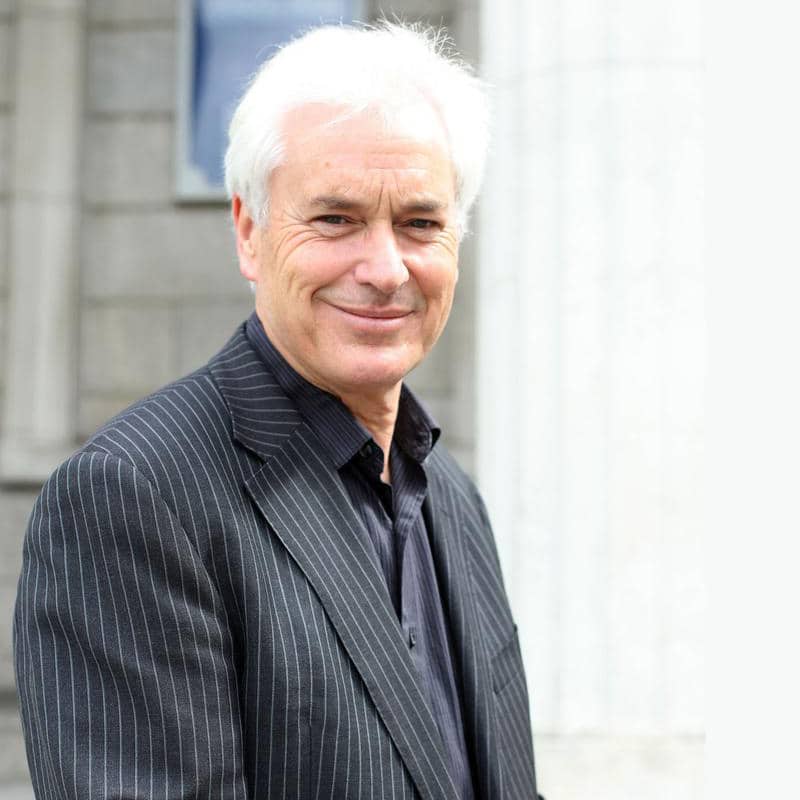
#49
The winner effect – the science of success and how to use it with Ian Robertson
Dr Ian Robertson is a clinical psychologist and neuroscientist. He is the Founding Director of the Trinity College Institute of Neuroscience, a Professor of Psychology at Trinity and Co-Director of the Global Brain Health Institute. Previously, he was a Senior Scientist at the MRC Cognition and Brain Sciences Unit at the University of Cambridge.
Robertson is a leading expert on stress and wellbeing, having published over 250 scientific articles in journals and has written several books on the mind, exploring stress, confidence and power. His latest book focuses on the science behind confidence.
This podcast is in two parts released this week and next. Today he talks to us about fascinating topics like “the Winner Effect” and “The Loser Effect”, how to breed success in the brain and different types of power and how these can affect our behaviours if we’re not aware of them.
Subscribe
Find the show on your favourite player
Summary
02:26 Moved into brain research
- Worked for ten years as a practising clinical psychologist
- There was a disconnect between the mind and brain
- Set up a research program at the MRC Cognition and Brain Sciences Unit at the University of Cambridge
04:28 What is the theory of ‘the Winner Effect’?
- Landau’s chicken hierarchy
- There was further proof from the green sunfish experiment (1967) and tennis players (2013)
- “It’s a primitive biological fact that winning gives you more of a chance of winning the next contest”
07:13 How does success breeding success happen in the brain?
- Winning brings a surge in testosterone, which increases dopamine in the brain’s reward network
- Dopamine lifts your mood, lowers anxiety, and increases motivation and aggression
- Depending on the level of dopamine, it can make you smarter
- Too much dopamine causes a lot of the problems that we see in dictators
08:32 The ‘Loser Effect’
- All mammals form dominance hierarchies
- The lower you are in a hierarchy, the lower your dopamine levels, which makes you less likely to take action
- This can be seen in positron emission tomography (PET) scanners
10:07 Advice to children and teenagers playing in competitive sports
- You should play to enjoy, not to win
- Training children to always win gives them a comparative mindset, which makes them more vulnerable to threats
- Make your own metric of success and focus on intrinsic motivation
- Teach children to learn from their mistakes
15:25 The potential consequences of power and behaviour
- Power is one of the greatest brain-changing agents
- Bertrand Russell likens power in human relations to energy in physics
- Power narrows your attention
- Too much power for too long can turn into a quasi-addictive cycle
- If a person has too much power, they lose empathy for others, become blind to risk, show misjudgements and become greedy and critical
18:50 Constraining power for the greater good
- One of the reasons why we succeed as a species is because we work in groups
- External governing constraints like democracy and freedom of press are designed to constrain power
- In the corporate world, there is a lot of focus on financial auditing but not power auditing
- Having clear values helps with an individual’s internal constraints
23:17 The need for more women in leadership positions
- Women have more S-power – i.e. more focused on goals for an institution, a group or a society – than N-power, which is focused on personal goals
- In the West, a woman’s self-concept is more embedded in their relations and a man’s self-concept is in themself
- Women are naturally better collaborators and team players than men
- Women help increase the IQs of small groups
- We need both men and women in leadership roles
26:50 The effect of being an introvert vs. extrovert when it comes to power
- Extroverts are more dominant in groups
- There is space for both personalities
28:19 The addictiveness of power
- Addiction to power is like being addicted to drugs
- Power makes you seek more power, e.g. money
- The ego is the biggest challenge to overcome the addiction to power
- A person’s ego swells when they are in power and become more hyper-sensitive to threats
- Through practising meditation and mindfulness, you learn that the ego is just an illusion
40:22 Managing our minds and emotions
- “Confidence is the most valuable resource a human being can have”
- Confidence leads to action
- Anxiety is the opposite of confidence, and it makes you do less things
Links Mentioned: